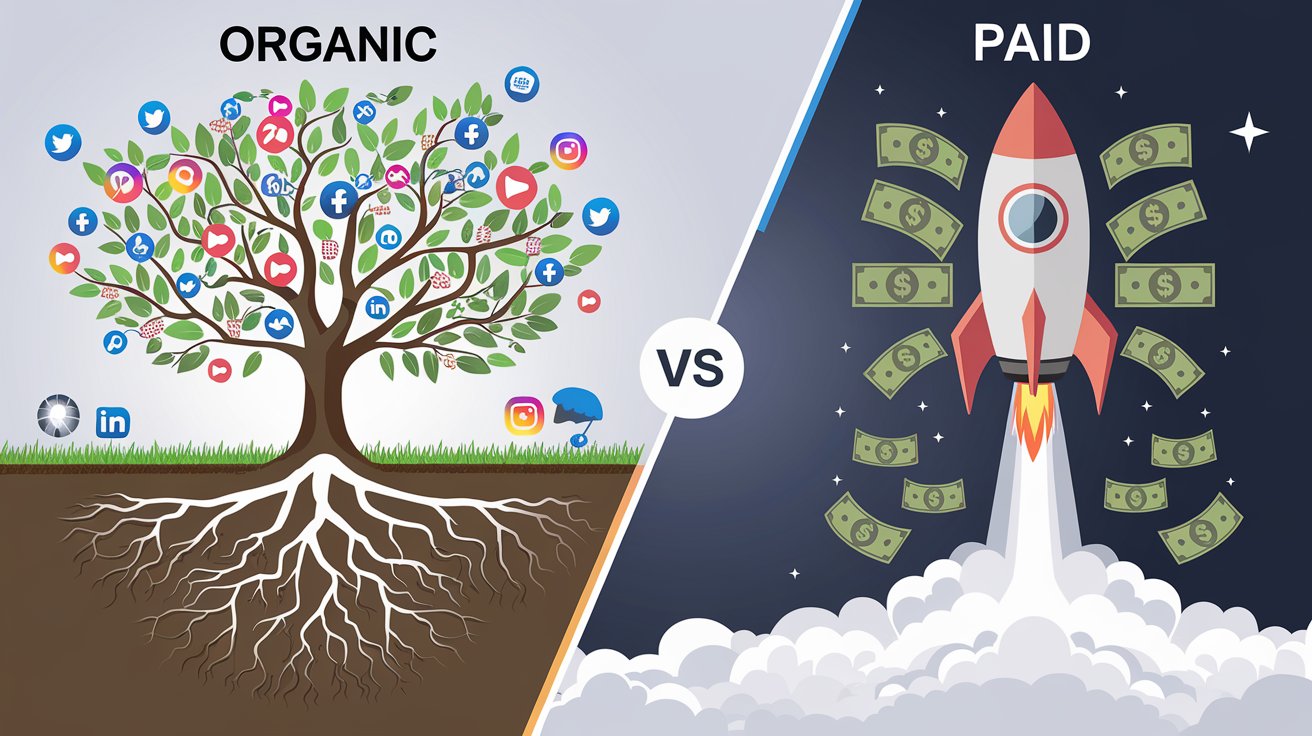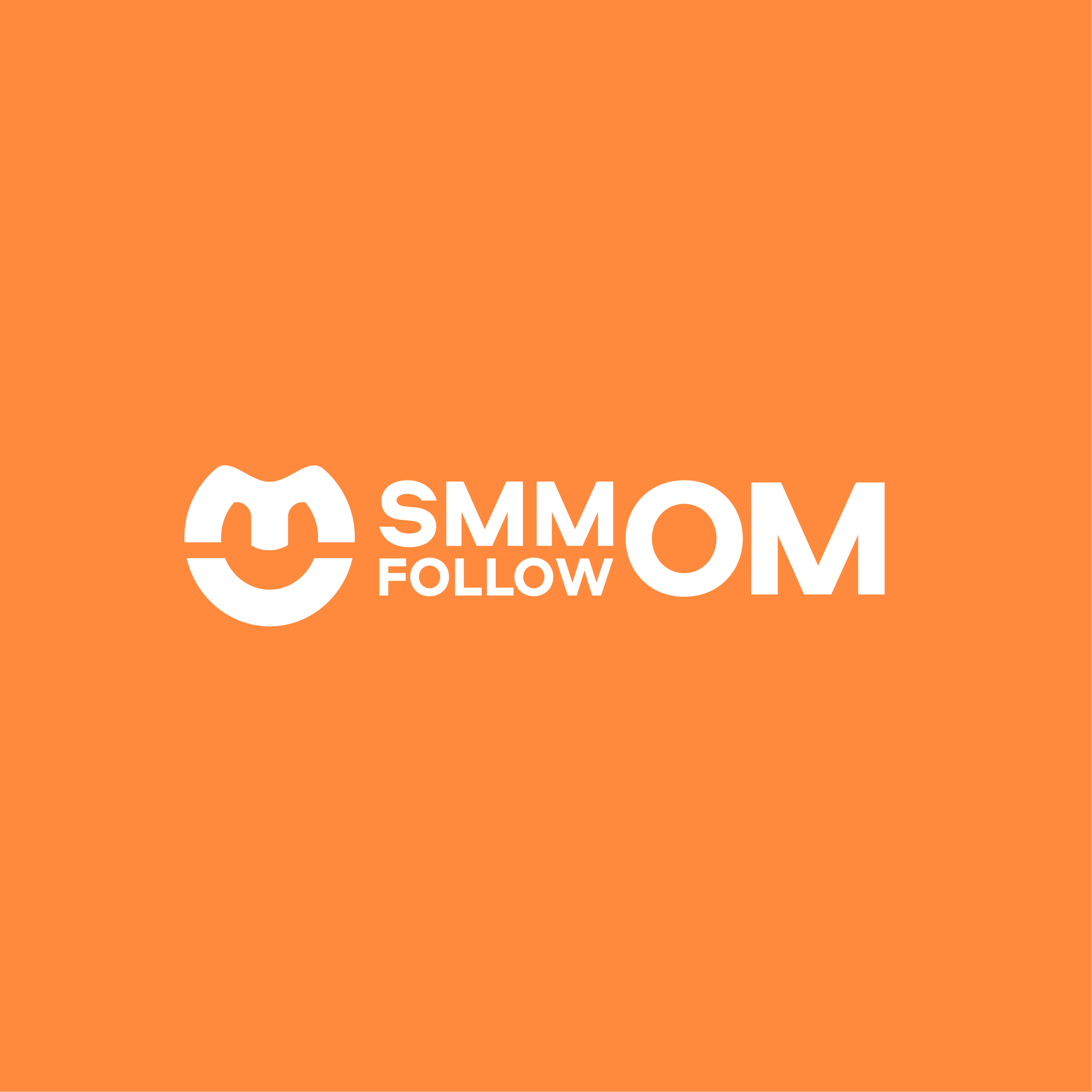
Organic vs Paid Social Media Marketing
If you’ve ever wondered whether to rely on organic social media content or invest in paid ads, you’re not alone. The battle between organic vs inorganic marketing strategy is real, and businesses are constantly trying to figure out the best approach. But here’s the deal – both have their place, and striking a balance between the two is key to success.
In this post, I’ll walk you through what is organic marketing, the benefits and limitations of organic and paid strategies, and how you can optimize your social media marketing pay for the best results. Ready? Let’s dive in!
What is Organic Marketing?
Understanding Organic Social Media Content
So, what is organic social media exactly? Simply put, organic marketing refers to unpaid strategies to grow your brand naturally. It includes activities like creating valuable content, engaging with your audience, and optimizing your posts for better reach.
What Does Organic Engagement Mean?
Organic engagement refers to user interactions like likes, comments, shares, and follows that happen without paid promotion. When someone interacts with your organic posts, it signals to social media algorithms that your content is relevant and should be shown to more users.
Benefits of Organic Growth Social Media
- Builds credibility and trust
- Creates long-term audience relationships
- Cost-effective and sustainable
- Encourages authentic engagement
Why Relying on Organic Marketing Strategy is Bad?
While organic strategies are great, why relying on organic marketing strategy is bad for some businesses? The truth is, growing solely through organic reach can be slow and unpredictable. Social media algorithms keep changing, making it harder for brands to consistently reach their audience without paid promote strategies.
What is Paid Social Media Marketing?
What is the Nature of the Paid Aspect of Advertising?
Now, let’s talk about the other side of the coin. Paid social media marketing involves marketing payment to platforms like Facebook, Instagram, or LinkedIn to promote your content. So, what is the nature of the paid aspect of advertising? Unlike organic marketing, paid marketing gives you control over who sees your content and when.
How Paid Promote Works
With paid promote, you can boost posts, run targeted ads, and drive traffic to your website instantly. This ensures your content reaches a larger audience, even if they don’t follow you.
Paid Cost and Budget Considerations
Let’s talk money! Paid Cost depends on several factors, including:
- Ad type (display ads, video ads, carousel ads, etc.)
- Target audience and demographics
- Bidding strategy
- Platform (Facebook, Instagram, Twitter, etc.)
Risks of Paid Advertising
Like anything in marketing, paid ads come with their risks. Some common risks of paid advertising include:
- High cost with no guaranteed ROI
- Audience fatigue from repetitive ads
- Ad-blocking software reducing visibility
Organic vs Inorganic Marketing Strategy: What’s the Difference?
Difference Between Organic and Paid Search Results
When you search for something on Google, you’ll notice two types of results – organic and paid. The difference between organic and paid search results is that organic results appear naturally based on relevance, while paid results show up because advertisers bid on those keywords.
What is Organic Social vs Paid Social?
So, what is organic social vs paid social? Organic social is all about engaging your audience naturally, while paid social gives you instant visibility through promotions.
Organic Advertising vs Paid Advertising
With organic advertising, you build trust and authority over time. Paid vs organic marketing, on the other hand, offers quick wins and measurable results.
Which Strategy Works Best?
Honestly? A mix of both! Organic strategies help you build a loyal audience, while paid campaigns ensure your brand gets noticed faster.
The Role of Organic and Paid Strategies in Social Media Marketing Pay
Balancing Organic and Paid Strategies
To maximize your social media marketing pay, use a hybrid approach:
- Post high-quality organic content regularly
- Boost high-performing organic posts to increase reach
- Use paid ads for retargeting and lead generation
Organic Social Media Stats and Performance Metrics
Curious about organic social media stats? Here are some insights:
- Organic reach has declined by 50% over the years
- Paid ads generate 3x more engagement than organic posts
- Brands using both organic and paid strategies see a 40% increase in conversions
Get Paid for Posting on Social Media: Monetization Tactics
How to Get Paid for Posting on Social Media
Want to get paid for posting on social media? Here’s how:
- Partner with brands for sponsored content
- Sell digital products or online courses
- Join affiliate programs to earn commissions
Marketing Payment Options for Influencers
As an influencer, you can earn through:
- Direct sponsorships
- Ad revenue sharing
- Subscription-based content (e.g., Patreon)
Conclusion
Both organic marketing and paid advertising have their pros and cons. The key is to find a strategy that aligns with your goals. Whether you rely on organic social media content or invest in paid ads, success comes from consistency, creativity, and adapting to trends.
Popular questions
We collected 5 of the most popular questions from our panel visitors and answered them.
Is organic marketing free?
Yes, but it takes time and effort to grow your audience.
How much does paid social media marketing cost?
Costs vary based on targeting, platform, and competition.
Can I rely only on organic marketing?
Not really. A combination of both organic and paid strategies works best.
How do I get paid for posting on social media?
You can earn through brand sponsorships, affiliate marketing, and selling digital products.
Which is better: organic or paid social media marketing?
It depends on your goals. Organic marketing is great for long-term brand building, while paid ads offer quick results.






